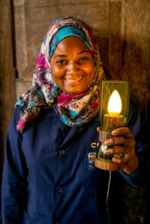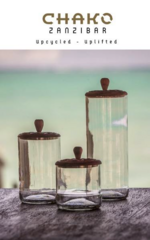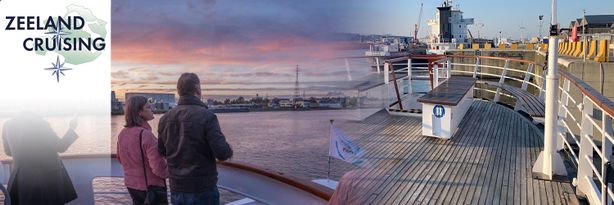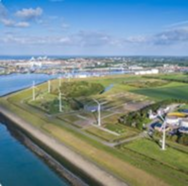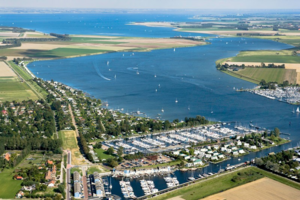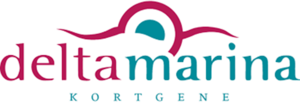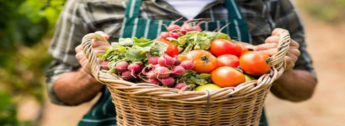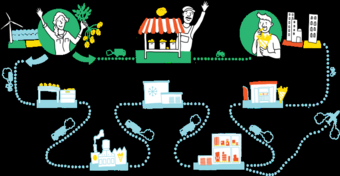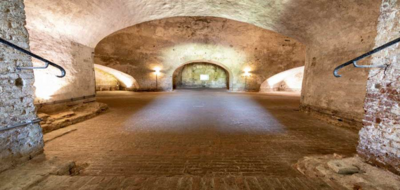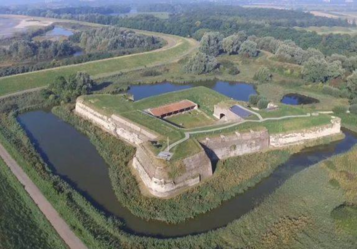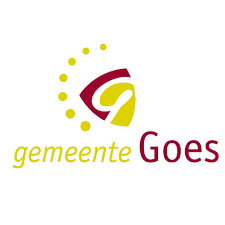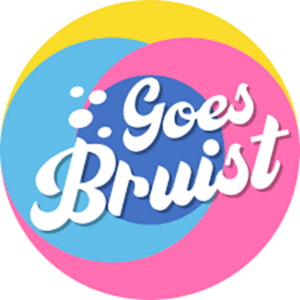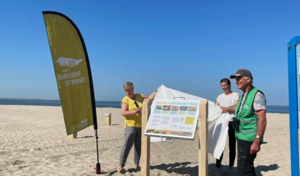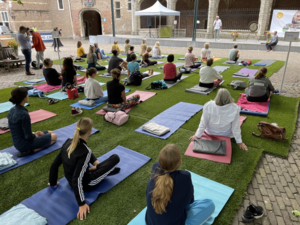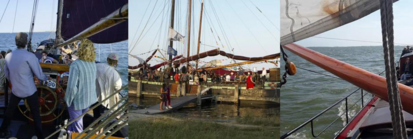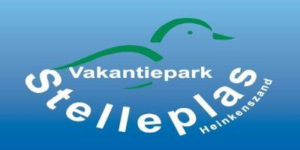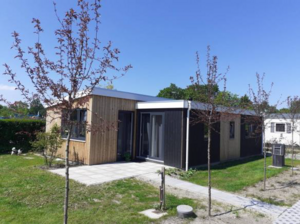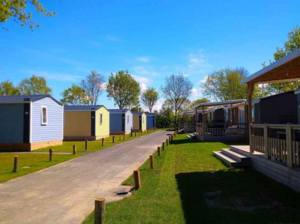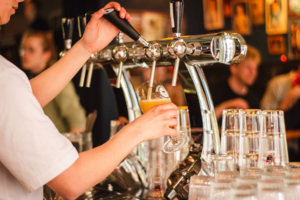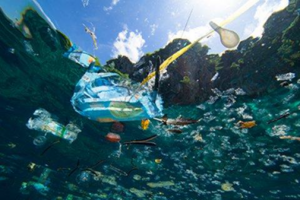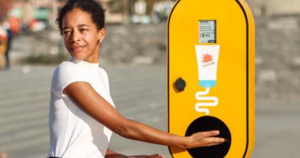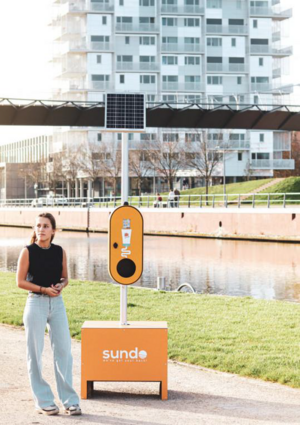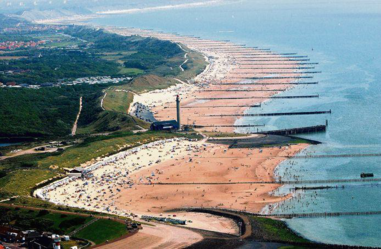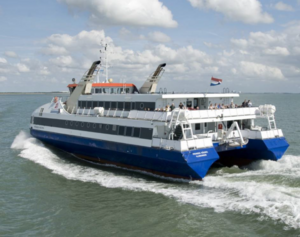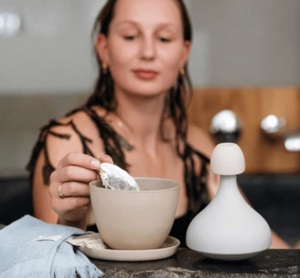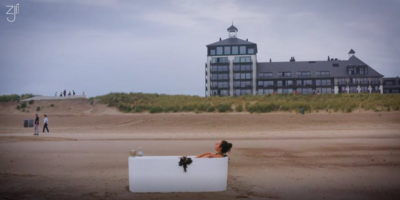LC 00804: verschil tussen versies
Geen bewerkingssamenvatting |
Geen bewerkingssamenvatting |
||
| (16 tussenliggende versies door 2 gebruikers niet weergegeven) | |||
| Regel 1: | Regel 1: | ||
{| class="wikitable" | |||
|Chako Zanzibar | |||
|} | |||
[[Bestand:Chako.png|miniatuur|224x224px]] | |||
[[Bestand:CHAKO.png|miniatuur|241x241px]] | |||
CHAKO, established in 2010, is a green, social enterprise based on the island of Zanzibar focused on producing a range of upcycled products utilizing waste generated on the island and creating a circular economy. CHAKO is a guaranteed Member of the World Fair Trade Organization since 2018 and based in Zanzibar, Tanzania. | |||
Their product ranges from upcycled glass, plastic and paper home decor and accessories. Currently 38 employees are working for CHAKO. CHAKO focusses on women empowerment and fair working conditions. | |||
CHAKO is not just a manufacturer and supplier, but a brand and invests in product development & design. It is CHAKO’s mission to become a green, zero waste, workshop. | |||
Assignment: CHAKO will bring a collection of the glass products on the European market (available from May 2022). These production will be sold B2B, so mainly to shops & boutiques. But also the hospitality branch (restaurants/hotels/wine bars etc) could be an interesting partner. They could use the upcycled products to decorate their establishment with or use for serving their drinks. Which areas have most potential for CHAKO? Through which channels can they reach their target market? What are the most interesting areas outside the Benelux? | |||
https://www.chakozanzibar.com/ | |||
{| class="wikitable" | |||
|'''Zeeland Cruising part 2''' | |||
''- HZ knowledge center for coastal tourism'' | |||
|} | |||
[[Bestand:Zeeland Cruising part 2.jpg|gecentreerd|miniatuur|614x614px|[[Www.zeelandcruising.nl]]]] | |||
'''<u>Project description</u>''' | |||
This project is a follow-up assignment of one of the first projects in academic year 2020/2021. It has been assigned by its stakeholders the HZ Knowledge Center for Coastal Tourism and local entrepreneurs Mr. Klaver, Mr. van Gessel, Mr. Kloosterboer and Mr. Muller. After part 1 of researching options for 'Cruising in Vlissingen' a further in-depth and detailed marketing plan was needed. A market analysis, a competitor analysis, a product, and promotional plan were conducted to further be able to launch this project onto the market. | |||
The purpose of the marketing plan is to advise Cruising Zeeland on how to differentiate themselves from the competition and furthermore create a brand name that represents its product, service, and the values of the company. | |||
'''<u>Outcomes:</u>''' | |||
Considering the various boat cruises providing similar services in the province of Zeeland, it is important as a start-up company that its attention is focused on the island of Walcheren, to be precise the city of Vlissingen, seeing that it is the 3rd port of the Netherlands and the economic driver of Central Zeeland due to its seaport and industrial area. | |||
More importantly, consumers nowadays also expect an experience with their purchase. To make a differentiation in the market and further appeal to its targeted audiences, Cruising Zeeland can provide several products in its first year, namely: the Seal Adventure Cruise, the Sunset Cruises, and the Combination Cruise. | |||
Two other ideas in which the vessel can be profitable and used for are for example a floating fast casual restaurant for during the low season, since the vessel can stay docked and be used to sell fast-casual food concepts such as bagels, sandwiches, wraps, tapas and more. This concept is ideal since it is a combination of fast food and fine dining, which will attract other types of customers towards Cruising Zeeland and broaden its market size. | |||
Another idea to explore and use is school excursions since they can be an exceptional way of making revenue during the low season. | |||
It is noticeable from the competitor's analysis that the competition in Vlissingen only set sail on Friday’s and Saturday’s, which gives Cruising Zeeland the advantage to offer its services every day to its targeted audience. Moreover, the company should create a Value Proposition Statement to steer the key marketing and advertisement decisions to positively impact the potential customer’s perception of the company, hence, it should be based on the principles and unique selling points of Cruising Zeeland: | |||
* Excellent customer journey | |||
* Product differentiation | |||
* Collaboration with local businesses | |||
<u>'''Respons client:'''</u> | |||
''"After working with the students in December 2021, the company 'Zeeland Cruising' was actually established. The choice of planned public sightseeing tours as was researched by the students for example, will definitely be part of the offer and probably from March 2023 onwards. The ship we purchased in October 2022 'Jacob van Arteveld', has been operational in November 2022 after the needed modernization".'' | |||
{| class="wikitable" | |||
|Delta Energy | |||
|} | |||
[[Bestand:Delta.png|miniatuur|188x188px]] | |||
DELTA is the main energy supplier in Zeeland, and a smaller one in the rest of the Netherlands. DELTA has a loyal customer base in Zeeland, however last years no (specific) loyalty program. | |||
To set up a successful and innovative loyalty program, DELTA would like to have more insight into the loyalty programs with which organizations in various branches within Europe work. Which programs are successful, distinctive and/or innovative? And what makes them successful? And vice versa, which loyalty programs are less successful and for what reason(s). These insights can make an important contribution to a successful implementation of their program. | |||
Client: Delta Energie | |||
{| class="wikitable" | |||
|Delta Marina | |||
|} | |||
[[Bestand:DM.png|miniatuur]] | |||
Delta Marina is a family harbour situated at the Veerse Meer, in Kortgene.The harbour has grown into a place where everything comes together and with a restaurant, service center, water sports shop, yacht brokerage and rental of motor and sailing yachts, sloops and smaller sailing boats there is always something to do. | |||
The core business of Delta Marina is renting out berths for recreational ships. | |||
[[Bestand:Delta marina.png|miniatuur]] | |||
Since the current pricing model is pretty traditional, the question of the client is: what other pricing models are there and what are the consequences of these on our business operations and the financial result in relation to increasing guest satisfaction/loyalty? | |||
Client: Delta Marina | |||
{| class="wikitable" | |||
|Farmer & Care/BoerENZorg | |||
|} | |||
[[Bestand:Boerenzorg.png|miniatuur|345x345px]] | |||
BoerENZorg wants to ensure healthy and local food at healthcare institutions in Zeeland. Their aim is that food receives more attention, and becomes healthy, tasty, and locally produced. Meals should consist of fresh and local products. The goal is that the residents of care institutions are happier with the food. But also that the cook and the farmer know each other better in the preparation. Because the client also wants to focus on other sectors, such as education, they have set up a BoerEnKeten (Farmer and Chain) foundation. | |||
[[Bestand:BZ.png|miniatuur|340x340px]] | |||
To start with health institutions contact has already made with care agency Rijckholt, located in Geersdijk. At this health institution research needs to be done on how this goal can be achieved. | |||
The help of students is needed to carry out research at Rijckholt . To establish the context, the policy. To clarify what people want through interviews (what does the cook want, what does the resident want, what does the manager want, what brokers/logistics want and what does the farmer want?). And what can be done? To ultimately establish a business case; can this become a revenue model? | |||
Client: BoerENZorg https://boerenzorg.eu/ | |||
{| class="wikitable" | |||
|Fort Rammekens | |||
|} | |||
Fort Rammekens is the oldest and one of the largest sea fortresses in Western Europe. A sea fort is fundamentally different from fortifications as we know them inland. Fort Rammekens was built between 1547 and 1552 by order of the Ghent born emperor Charles V (1500 1555). | |||
After the English attack on the island of Walcheren in 1809, Napoleon Bonaparte, the then occupier of the Netherlands, decided to enlarge and modernize Fort Rammekens . A visit now gives a good idea of the layout and the way men used to live there. During the Second World War, the fort was a German fortification and part of the Atlantic Wall, the defense line against the Allies. In addition to being a military fortification, the fort also had other functions: a supply station for sailing ships waiting for good wind in the roadstead, a hospital and a mushroom farm.[[Bestand:Fort rammekens.png|miniatuur|400x400px]]About 10 years ago Fort Rammekens - a national monument - was consolidated and refurbished. | |||
Fort Rammekens can be visited during the weekends. It is also used as a multifunctional environment: as a wedding location recognized by the municipality of Vlissingen, performances, festival location, photo shoots, magic weekends, etc. It also has a special flora and fauna. | |||
[[Bestand:Fort rammekens 2.png|miniatuur|357x357px]] | |||
Fort Rammekens has a lot of potential due to its special location, history and construction. There may still be archaeological gems hidden under the current layer. However, the Fort is struggling with overdue maintenance, limited fame, limited catering opti ons and an outdated exhibition and film. It relies mainly on well meaning and knowledgeable volunteers, but approaching the average age of 70. An intervention towards the future is therefore necessary to allow the Fort to survive in such a way that future generati ons can also enjoy it. In short, the challenge is to prepare Fort Rammekens in all facets for the future. | |||
To prepare the fort for the future, modernization and more publicity is needed. What are the wishes and needs of the desired target group(s) and how can these be translated into recommendations for a future proof fortress? And how can these recommendations also lead to more brand awareness within the tourism sector? | |||
http://www.fortrammekens.nl/index.php | |||
{| class="wikitable" | |||
|Goes Bruist | |||
|} | |||
[[Bestand:Gemeente goes.png|miniatuur]] | |||
Goes Bruist is a collective name for a completely new vitality concept for (vulnerable) residents of the Municipality of Goes. The concep t is all about a vitality week where sports activities are planned with the aim of social encounters for young and old. This involves collaboration with various local and regional part ner s from education, government, healthcare, associations and companies. The main contractor of Goes Bruist is Skills & Control / Skills4Life. The event Goes Bruist will be organized at various locations in the municipality of Goes: Swimmingpool The Omnium, soccer club VV Kloetinge and the Bleekplein. Goes Bruist was organized in the weeks from 18 to 25 July 2022. | |||
What the week looked like: | |||
• Day 1: Yoyth Football Day / Football Day for Children / Organization by Skills & Control | |||
• Day 2: Fight Cancer Foundation / v.b. Swim to fight cancer LoveLife Run Walk & Dance to fight cancer / Organization by students and others stakeholders | |||
• Day 3: Multigames Youth Day / Diverse and sporting event for children / Organization by Skills4Life | |||
[[Bestand:Goes bruist.png|miniatuur]] | |||
• Day 4: Young & Old Together Gold! / Social meeting between children and the elderly / Organization by Skills4Life | |||
• Day 5: Beach games Seniors @ Katoen / BeachVolleybal BeachSoccer on Bleekplein / Organization by students and other stakeholders | |||
• Day 6: Beach games Youth @ Katoen / BeachVolleybal BeachSoccer on Bleekplein / Organization by students and other stakeholders | |||
• All events are linked to the annual theme of the Municipality of Goes: Goes Europajaar | |||
Part of this project was to conduct research on the needs and wishes of potential visitors of this event. In addition, the students were responsible for the coordination and implementation of one or more sub events of Goes Bruist. All sub events to which students can be linked are made bold. | |||
https://www.skillsandcontrol.nl/ | |||
{| class="wikitable" | |||
|Green Beach | |||
|} | |||
[[Bestand:Groene Strand.png|miniatuur]] | |||
The Groene Strand project (Green Beach Project) is a temporary project to improve the nature on Dutch beaches. The project focusses on collaboration between different stakeholders such as organisations, businesses and volunteers. These collaborations are solidified in “communities” who apply the 10 criteria of the project to the local situation to create beaches where nature is integrated in the activities on the beach. Beaches where the criteria and collaboration are completely implemented are awarded with a Green Beach Banner to show that that beach integrates nature in their activities. | |||
[[Bestand:Gb.png|miniatuur]] | |||
One of the goals of the Green Beach project is to have more natural materials on the beach. By switching from mechanical to manual cleaning more natural materials, such as seaweed, that washed ashore can stay on the beach. This natural material plays an important role as food and hiding place for insects who, on their turn are an important food source for shorebirds. Seaweed is also needed for new dunes to form, the dune plants use the seaweed as nutrients to grow and hold sand forming new dunes. One of the difficulties with convincing businesses/ entrepreneurs located on the beach is because nature is often not their focus. They have other things on their mind (mostly revenue) yet they are part of the (eco-)system of the beach. For this project the focus is specifically on businesses and entrepreneurs located on (and close to) beach sites and how nature education can enhance more value and awareness to their organization and its environment. | |||
Client: [https://www.hetgroenestrand.nl/ Het Groene Strand] | |||
{| class="wikitable" | |||
|Health Event Yes | |||
|} | |||
[[Bestand:Yes.png|miniatuur]] | |||
The ‘YES Nederland’ Event that is taking place in Middelburg was established in 2017 and is being held every year. Due to the global pandemic the event had to pause for about two years and took place this year again. The client is the founder and organizer of the event itself; Karen Vrolijk. | |||
The event is organized within a non-profit organization and has been pushed to a higher level by the client in 2022. Therefore, she had to tackle more challenges, like as an example the pricing for the tickets for the first time, while facing the uncertainty of gathering money through governmental support or sponsorships. The client has therefore communicated following problem statement to the students: | |||
‘’How can the event remain happening in the next couple of years considering the regional (and international) circumstances in the context of the challenges arising from gathering the money?’’ | |||
Client: Karen Vrolijk | |||
{| class="wikitable" | |||
|Historic cargo sailing vessel <nowiki>''The Vrijbuiter''</nowiki> | |||
|} | |||
The ship <nowiki>''</nowiki>Vrijbuiter<nowiki>''</nowiki> is a Tjalk built in 1901 for freight shipping. After industrialization and scaling up, the ship became too small for regular freight shipping and was used as a charter sailing ship. The former motor freighter was equipped to make sailing trips with groups of several days or shorter. The current owners of the ship will replace the engine with electric motors in 2022 and have the ambition to further expand the current creative and sustainable tourism initiatives on board. The historical function of the ship; the transport of products, the owners would like to use again in combination with boat trips. New initiatives should take place on the Zeeland waters. | |||
Assignment: | |||
(1) Best practices: Collecting current sustainable and creative tourism initiatives on board comparable ships. | |||
(2) Desk research (consulting already conducted studies): Generating insight into the interest in and mapping potential target groups for the following tourist activities: | |||
[[Bestand:Vrijbuiter.png|miniatuur|413x413px]] | |||
• Sailing on a historic sailing ship as an activity; | |||
• A historic sailing ship as a means of discovering a new destination; | |||
• Transporting regional products (charter boat) with passengers on board; | |||
• Education on board: Allowing tourists/education groups to sail along; | |||
• Musical sailings | |||
• Special arrangements (examples of these) | |||
• Food tourism as an area of interest | |||
(3) In-depth interviews: Participate in an in-depth study to explore the interest in the aforementioned tourist aspects of guests who have already sailed on the Vrijbuiter. 8 to 10 respondents will be interviewed. | |||
https://www.vrijbuiterzeilen.nl/ | |||
{| class="wikitable" | |||
|Holiday Park Stelleplas | |||
|} | |||
[[Bestand:Stelleplas.png|miniatuur]] | |||
Implementing management and activities in a sustainable way that can be developed for guests and the environment of the park Stelleplas. Stelleplas holiday park in Heinkenszand is currently in development. There are more than 200 homes, many of which are available for rent. Villa Viva is asked to take care of the management for the holiday park and is responsible for a number of houses. Villa Viva wants to use their capacity as much as possible. The question is how Villa Viva can improve the capacity and management and by doing so add sustainable value to the park and its area. | |||
[[Bestand:Vakantiepark.png|miniatuur]] | |||
The management involves the incoming and outgoing traffic, keeping track of the terrain, keeping the toilet blocks clean, setting up and organizing summer holidays, entertainment, collaboration with the close by located swimming pool, but also to optimize use of rental capacity, so that as many people as po ssible can enjoy and experience it. | |||
Assignment: How can Villa Viva manage the park in a sustainable way, so that the park, the guest and its environment are optimally integrated and balanced. Possible research directions can look like: | |||
- Current situation analysis (Owners residents, owners rental, board, park manager) | |||
- What possibilities are there for sustainability and cooperation with local parties such as the municipality. | |||
- Clarifying the value drivers and motivations for the park (reasons why holidaymaker would like to book there). | |||
[[Bestand:Vk.png|miniatuur]] | |||
- Name value adding activities and collaborations for park, such as design and organization of the entertainment in the park in high season, cooperation with the adjacent swimming pool, restaurant. | |||
- Contribution to sustainability objectives and collaborations for the park as elaborating and naming part of the action plan. | |||
- Financial analysis of the chosen options (cost benefit) | |||
- Legal construction in which management can be shaped | |||
- Communication analysis and optimization (between the parties and external communication) | |||
- Recommendations and action plan for implementation | |||
Client: Villa Viva | |||
{| class="wikitable" | |||
|Human Capital | |||
|} | |||
[[Bestand:Human capital.png|miniatuur]] | |||
The hospitality domain has serious shortages of qualified personnel. Social developments on the one hand and on the other the inability of employers in the sector to sustainably retain staff have caused this labor market problems. This leads to problems in the business operations of individual entrepreneurs, but also to problems in the provision of services at destination level. | |||
It is a project concerning the analysis of vacancy texts within the hospitality sector (catering, accommodation and daytime recreation) in order to gain more insight into the demand from entrepreneurs in terms of job description, desired level of education and required skills. | |||
Client: Knowledge Center of Coastal Tourism | |||
{| class="wikitable" | |||
|Plastic Soup | |||
|} | |||
[[Bestand:Plastic soup.png|miniatuur]] | |||
Knowledge Center of Coastal Tourism is looking for a Dutch speaking student who can explore activities related to reducing the use of plastic in the Zeeland leisure sector. This is possible in the broadest sense of the word, so looking at, for example, activities of entrepreneurs, NGOs, government, etc. | |||
An international student can connect to this by carrying out the same exploration in a comparable area to be determined (conditions: the region is comparable to Zeeland and sufficient data are available). There are various ways to map this out, such as an analysis of various media and websites or a short conversation with entrepreneurs. It is then up to the students to find a good form to showcase the outcomes of the findings. This exploration could be structured as a small thesis. | |||
{| class="wikitable" | |||
|Sundo | |||
|} | |||
[[Bestand:Sundo.png|miniatuur]] | |||
The sun brings a good mood, positive energy and brightens us up. Lots of vitamin D and we get a nice tan for free. But as often, too much is not good. Skin health is becoming increasingly important. Unfortunately, recreationists, outdoor workers and outdoor athletes ar e a group where there is an increased risk of sunburn and thus skin cancer. The number of skin cancer cases has doubled in the last 10 yea rs and is expected to continue to increase at least until 2040. Meanwhile, 20% of the Netherlands will have to deal with some form of s kin cancer during their lifetime. The Netherlands is therefore in number #2 in the EU. Did you know that of all cancer cases, 52% is skin cancer? A shocking number. Awareness is growing, but unfortunately actions do not always follow. | |||
[[Bestand:Sundo 2.png|miniatuur]] | |||
Sundo provides smart distribution poles for free sunscreen: The sunscreen pole. An elegant design, provided with solar information, also provides a cheerful note in the street scene. Sundo does not want to limit itself to installing sun protection posts. To make people more aware to deal with the dangers of the sun, we have an innovative approach developed called the preventive approach. It is therefore important to realize in the research: People are actually not aware of the danger they run. Hence, one question is asked about how well in formed they think they are. | |||
We need each other's help to reduce this increasing number of skin cancers and protect our people. Our goal is to keep people healthy when it comes to their skin and thereby reduce the increasing number of skin cancers. The ultimate goal: 30% less skin cancer in 30 years. | |||
In this research tourists in Zeeland need to be approached and asked about their knowledge about the risks of the sun and whether they would feel more ‘safe’ if a certain municipality would place a sunscreen pole. How does this influence the image of a certain de stination or organization? | |||
The main question will be: Does the smart sun protection pole offer added value in the recreational (outdoor) environment for tourists? | |||
''Sub questions'' | |||
- What role does health play in choosing where to recreate? | |||
- What perception does a tourist/recreationist have when it comes to companies that have started health initiatives, tailored t o the tourist? (Does this increase confidence, arouse suspicion, do you become more loyal to this company or not, are you willing to spend more money with this company or not) | |||
https://sundo.nl/ | |||
{| class="wikitable" | |||
|Visitor Research | |||
|} | |||
In addition to the Dutch national surveys, a Zeeland wide visitor survey will be conducted year round from 2022.This creates more insight into motivation and behavior of the different groups of users of the Zeeland leisure sector. | |||
Data collection takes place in collaboration with providers in all kinds of sectors: accommodation, attractions, culture, nature, catering, retail. The results are presented at an individual level to entrepreneurs and involved parties as a thank you for their contribution to the execution of the research. | |||
[[Bestand:Visitor research.png|miniatuur|381x381px]] | |||
Tasks can include: | |||
- Developing concept data visualization for entrepreneurs (e.g. in an automatically generated | |||
report or in a dashboard) | |||
- Taking care of / sending communication material / paper questionnaires, etc | |||
- Research on how to motivate entrepreneurs to participate | |||
- Company visit to see how research can be improved (useful when you are a Dutch student) | |||
Client: Knowledge Center for Coastal Tourism | |||
{| class="wikitable" | |||
|Westerschelde Ferry | |||
|} | |||
[[Bestand:Ferry.png|miniatuur]] | |||
Many tourists have been using the Westerschelde Ferry since 2003. Every year there are about 400,000 tourists that use the ferry. But who are those tourists, where do they come from and how did they find the Westerschelde Ferry? How can we approach the tourists who stay in Zeeland or in the region so that they can use the Ferry and enjoy the crossing. The management wants to focus on the experience both ashore and onboard. But before they actually can create an experience it is necessary to first get to know the target group and their needs and wishes. At the moment the organization doesn’t now anything about the tourists, while at the same time they would like to approach them in order to welcome more tourists on board the Ferry. This project will entail both desk research and field research. | |||
https://www.westerscheldeferry.nl/ | |||
{| class="wikitable" | |||
|ZJÍ Wellness Products | |||
|} | |||
[[Bestand:Zji.png|miniatuur]] | |||
ZJÍ is a start up that operates in Seaweed wellness products associated with the sea for the tourism sector. Core values are sustainability, natural, good feeling, and stylish. The intention is to really create a brand that adds to the Zeeland holiday feeling. Over the past year, students in the Garage did several studies in which they conducted market research about possible customers such as hotels, recreation sector, retail and customers (medium and high segment). These studies were successful and the owners were very happy with their help. However, it also opens new questions: | |||
How can ZJÍ create more sales through our webshop ? It seems that the use of seaweed for personal use is still a big step for people. In order to gain more sales, the organization needs to know who are their potential customers, what are their needs and wishes. | |||
- Do customers buy the products for themselves or as a gift? Are they interested in the products because of its luxury or because of the natural aspects and health benefits? | |||
- Why do people want to take the sea home with them respond to the experience what is included in the product to make it more attractive? Also focus on the look and feel of products and what feeling does it evoke? | |||
[[Bestand:Zji 2.png|miniatuur|400x400px]] | |||
- What creates the 'threshold' what is the motivation to buy products from ZJÍ and what prevents people from buying? | |||
- Which search criteria/terms does the target group use and how can we better reach them via the website? | |||
- How can ZJÍ improve SEO with this? | |||
More info: ZJÍ, Sea Wellness (www.zji.nl) | |||
{{Light Context | {{Light Context | ||
|Supercontext=LC_00792 | |Supercontext=LC_00792 | ||
| Regel 4: | Regel 281: | ||
|Toppage=Other | |Toppage=Other | ||
|Sequence number=200000 | |Sequence number=200000 | ||
|Sequence numbers=; | |Sequence numbers=undefined,undefined; | ||
|Context type=Situation | |Context type=Situation | ||
|Heading=2021-2022 | |Heading=2021-2022 | ||
Huidige versie van 21 nov 2022 om 14:50
| Chako Zanzibar |
CHAKO, established in 2010, is a green, social enterprise based on the island of Zanzibar focused on producing a range of upcycled products utilizing waste generated on the island and creating a circular economy. CHAKO is a guaranteed Member of the World Fair Trade Organization since 2018 and based in Zanzibar, Tanzania.
Their product ranges from upcycled glass, plastic and paper home decor and accessories. Currently 38 employees are working for CHAKO. CHAKO focusses on women empowerment and fair working conditions.
CHAKO is not just a manufacturer and supplier, but a brand and invests in product development & design. It is CHAKO’s mission to become a green, zero waste, workshop.
Assignment: CHAKO will bring a collection of the glass products on the European market (available from May 2022). These production will be sold B2B, so mainly to shops & boutiques. But also the hospitality branch (restaurants/hotels/wine bars etc) could be an interesting partner. They could use the upcycled products to decorate their establishment with or use for serving their drinks. Which areas have most potential for CHAKO? Through which channels can they reach their target market? What are the most interesting areas outside the Benelux?
https://www.chakozanzibar.com/
| Zeeland Cruising part 2
- HZ knowledge center for coastal tourism |
Project description
This project is a follow-up assignment of one of the first projects in academic year 2020/2021. It has been assigned by its stakeholders the HZ Knowledge Center for Coastal Tourism and local entrepreneurs Mr. Klaver, Mr. van Gessel, Mr. Kloosterboer and Mr. Muller. After part 1 of researching options for 'Cruising in Vlissingen' a further in-depth and detailed marketing plan was needed. A market analysis, a competitor analysis, a product, and promotional plan were conducted to further be able to launch this project onto the market.
The purpose of the marketing plan is to advise Cruising Zeeland on how to differentiate themselves from the competition and furthermore create a brand name that represents its product, service, and the values of the company.
Outcomes:
Considering the various boat cruises providing similar services in the province of Zeeland, it is important as a start-up company that its attention is focused on the island of Walcheren, to be precise the city of Vlissingen, seeing that it is the 3rd port of the Netherlands and the economic driver of Central Zeeland due to its seaport and industrial area.
More importantly, consumers nowadays also expect an experience with their purchase. To make a differentiation in the market and further appeal to its targeted audiences, Cruising Zeeland can provide several products in its first year, namely: the Seal Adventure Cruise, the Sunset Cruises, and the Combination Cruise.
Two other ideas in which the vessel can be profitable and used for are for example a floating fast casual restaurant for during the low season, since the vessel can stay docked and be used to sell fast-casual food concepts such as bagels, sandwiches, wraps, tapas and more. This concept is ideal since it is a combination of fast food and fine dining, which will attract other types of customers towards Cruising Zeeland and broaden its market size.
Another idea to explore and use is school excursions since they can be an exceptional way of making revenue during the low season.
It is noticeable from the competitor's analysis that the competition in Vlissingen only set sail on Friday’s and Saturday’s, which gives Cruising Zeeland the advantage to offer its services every day to its targeted audience. Moreover, the company should create a Value Proposition Statement to steer the key marketing and advertisement decisions to positively impact the potential customer’s perception of the company, hence, it should be based on the principles and unique selling points of Cruising Zeeland:
- Excellent customer journey
- Product differentiation
- Collaboration with local businesses
Respons client:
"After working with the students in December 2021, the company 'Zeeland Cruising' was actually established. The choice of planned public sightseeing tours as was researched by the students for example, will definitely be part of the offer and probably from March 2023 onwards. The ship we purchased in October 2022 'Jacob van Arteveld', has been operational in November 2022 after the needed modernization".
| Delta Energy |
DELTA is the main energy supplier in Zeeland, and a smaller one in the rest of the Netherlands. DELTA has a loyal customer base in Zeeland, however last years no (specific) loyalty program.
To set up a successful and innovative loyalty program, DELTA would like to have more insight into the loyalty programs with which organizations in various branches within Europe work. Which programs are successful, distinctive and/or innovative? And what makes them successful? And vice versa, which loyalty programs are less successful and for what reason(s). These insights can make an important contribution to a successful implementation of their program.
Client: Delta Energie
| Delta Marina |
Delta Marina is a family harbour situated at the Veerse Meer, in Kortgene.The harbour has grown into a place where everything comes together and with a restaurant, service center, water sports shop, yacht brokerage and rental of motor and sailing yachts, sloops and smaller sailing boats there is always something to do.
The core business of Delta Marina is renting out berths for recreational ships.
Since the current pricing model is pretty traditional, the question of the client is: what other pricing models are there and what are the consequences of these on our business operations and the financial result in relation to increasing guest satisfaction/loyalty?
Client: Delta Marina
| Farmer & Care/BoerENZorg |
BoerENZorg wants to ensure healthy and local food at healthcare institutions in Zeeland. Their aim is that food receives more attention, and becomes healthy, tasty, and locally produced. Meals should consist of fresh and local products. The goal is that the residents of care institutions are happier with the food. But also that the cook and the farmer know each other better in the preparation. Because the client also wants to focus on other sectors, such as education, they have set up a BoerEnKeten (Farmer and Chain) foundation.
To start with health institutions contact has already made with care agency Rijckholt, located in Geersdijk. At this health institution research needs to be done on how this goal can be achieved.
The help of students is needed to carry out research at Rijckholt . To establish the context, the policy. To clarify what people want through interviews (what does the cook want, what does the resident want, what does the manager want, what brokers/logistics want and what does the farmer want?). And what can be done? To ultimately establish a business case; can this become a revenue model?
Client: BoerENZorg https://boerenzorg.eu/
| Fort Rammekens |
Fort Rammekens is the oldest and one of the largest sea fortresses in Western Europe. A sea fort is fundamentally different from fortifications as we know them inland. Fort Rammekens was built between 1547 and 1552 by order of the Ghent born emperor Charles V (1500 1555).
After the English attack on the island of Walcheren in 1809, Napoleon Bonaparte, the then occupier of the Netherlands, decided to enlarge and modernize Fort Rammekens . A visit now gives a good idea of the layout and the way men used to live there. During the Second World War, the fort was a German fortification and part of the Atlantic Wall, the defense line against the Allies. In addition to being a military fortification, the fort also had other functions: a supply station for sailing ships waiting for good wind in the roadstead, a hospital and a mushroom farm.
About 10 years ago Fort Rammekens - a national monument - was consolidated and refurbished.
Fort Rammekens can be visited during the weekends. It is also used as a multifunctional environment: as a wedding location recognized by the municipality of Vlissingen, performances, festival location, photo shoots, magic weekends, etc. It also has a special flora and fauna.
Fort Rammekens has a lot of potential due to its special location, history and construction. There may still be archaeological gems hidden under the current layer. However, the Fort is struggling with overdue maintenance, limited fame, limited catering opti ons and an outdated exhibition and film. It relies mainly on well meaning and knowledgeable volunteers, but approaching the average age of 70. An intervention towards the future is therefore necessary to allow the Fort to survive in such a way that future generati ons can also enjoy it. In short, the challenge is to prepare Fort Rammekens in all facets for the future.
To prepare the fort for the future, modernization and more publicity is needed. What are the wishes and needs of the desired target group(s) and how can these be translated into recommendations for a future proof fortress? And how can these recommendations also lead to more brand awareness within the tourism sector?
http://www.fortrammekens.nl/index.php
| Goes Bruist |
Goes Bruist is a collective name for a completely new vitality concept for (vulnerable) residents of the Municipality of Goes. The concep t is all about a vitality week where sports activities are planned with the aim of social encounters for young and old. This involves collaboration with various local and regional part ner s from education, government, healthcare, associations and companies. The main contractor of Goes Bruist is Skills & Control / Skills4Life. The event Goes Bruist will be organized at various locations in the municipality of Goes: Swimmingpool The Omnium, soccer club VV Kloetinge and the Bleekplein. Goes Bruist was organized in the weeks from 18 to 25 July 2022.
What the week looked like:
• Day 1: Yoyth Football Day / Football Day for Children / Organization by Skills & Control
• Day 2: Fight Cancer Foundation / v.b. Swim to fight cancer LoveLife Run Walk & Dance to fight cancer / Organization by students and others stakeholders
• Day 3: Multigames Youth Day / Diverse and sporting event for children / Organization by Skills4Life
• Day 4: Young & Old Together Gold! / Social meeting between children and the elderly / Organization by Skills4Life
• Day 5: Beach games Seniors @ Katoen / BeachVolleybal BeachSoccer on Bleekplein / Organization by students and other stakeholders
• Day 6: Beach games Youth @ Katoen / BeachVolleybal BeachSoccer on Bleekplein / Organization by students and other stakeholders
• All events are linked to the annual theme of the Municipality of Goes: Goes Europajaar
Part of this project was to conduct research on the needs and wishes of potential visitors of this event. In addition, the students were responsible for the coordination and implementation of one or more sub events of Goes Bruist. All sub events to which students can be linked are made bold.
https://www.skillsandcontrol.nl/
| Green Beach |
The Groene Strand project (Green Beach Project) is a temporary project to improve the nature on Dutch beaches. The project focusses on collaboration between different stakeholders such as organisations, businesses and volunteers. These collaborations are solidified in “communities” who apply the 10 criteria of the project to the local situation to create beaches where nature is integrated in the activities on the beach. Beaches where the criteria and collaboration are completely implemented are awarded with a Green Beach Banner to show that that beach integrates nature in their activities.
One of the goals of the Green Beach project is to have more natural materials on the beach. By switching from mechanical to manual cleaning more natural materials, such as seaweed, that washed ashore can stay on the beach. This natural material plays an important role as food and hiding place for insects who, on their turn are an important food source for shorebirds. Seaweed is also needed for new dunes to form, the dune plants use the seaweed as nutrients to grow and hold sand forming new dunes. One of the difficulties with convincing businesses/ entrepreneurs located on the beach is because nature is often not their focus. They have other things on their mind (mostly revenue) yet they are part of the (eco-)system of the beach. For this project the focus is specifically on businesses and entrepreneurs located on (and close to) beach sites and how nature education can enhance more value and awareness to their organization and its environment.
Client: Het Groene Strand
| Health Event Yes |
The ‘YES Nederland’ Event that is taking place in Middelburg was established in 2017 and is being held every year. Due to the global pandemic the event had to pause for about two years and took place this year again. The client is the founder and organizer of the event itself; Karen Vrolijk.
The event is organized within a non-profit organization and has been pushed to a higher level by the client in 2022. Therefore, she had to tackle more challenges, like as an example the pricing for the tickets for the first time, while facing the uncertainty of gathering money through governmental support or sponsorships. The client has therefore communicated following problem statement to the students:
‘’How can the event remain happening in the next couple of years considering the regional (and international) circumstances in the context of the challenges arising from gathering the money?’’
Client: Karen Vrolijk
| Historic cargo sailing vessel ''The Vrijbuiter'' |
The ship ''Vrijbuiter'' is a Tjalk built in 1901 for freight shipping. After industrialization and scaling up, the ship became too small for regular freight shipping and was used as a charter sailing ship. The former motor freighter was equipped to make sailing trips with groups of several days or shorter. The current owners of the ship will replace the engine with electric motors in 2022 and have the ambition to further expand the current creative and sustainable tourism initiatives on board. The historical function of the ship; the transport of products, the owners would like to use again in combination with boat trips. New initiatives should take place on the Zeeland waters.
Assignment:
(1) Best practices: Collecting current sustainable and creative tourism initiatives on board comparable ships.
(2) Desk research (consulting already conducted studies): Generating insight into the interest in and mapping potential target groups for the following tourist activities:
• Sailing on a historic sailing ship as an activity;
• A historic sailing ship as a means of discovering a new destination;
• Transporting regional products (charter boat) with passengers on board;
• Education on board: Allowing tourists/education groups to sail along;
• Musical sailings
• Special arrangements (examples of these)
• Food tourism as an area of interest
(3) In-depth interviews: Participate in an in-depth study to explore the interest in the aforementioned tourist aspects of guests who have already sailed on the Vrijbuiter. 8 to 10 respondents will be interviewed.
https://www.vrijbuiterzeilen.nl/
| Holiday Park Stelleplas |
Implementing management and activities in a sustainable way that can be developed for guests and the environment of the park Stelleplas. Stelleplas holiday park in Heinkenszand is currently in development. There are more than 200 homes, many of which are available for rent. Villa Viva is asked to take care of the management for the holiday park and is responsible for a number of houses. Villa Viva wants to use their capacity as much as possible. The question is how Villa Viva can improve the capacity and management and by doing so add sustainable value to the park and its area.
The management involves the incoming and outgoing traffic, keeping track of the terrain, keeping the toilet blocks clean, setting up and organizing summer holidays, entertainment, collaboration with the close by located swimming pool, but also to optimize use of rental capacity, so that as many people as po ssible can enjoy and experience it.
Assignment: How can Villa Viva manage the park in a sustainable way, so that the park, the guest and its environment are optimally integrated and balanced. Possible research directions can look like:
- Current situation analysis (Owners residents, owners rental, board, park manager)
- What possibilities are there for sustainability and cooperation with local parties such as the municipality.
- Clarifying the value drivers and motivations for the park (reasons why holidaymaker would like to book there).
- Name value adding activities and collaborations for park, such as design and organization of the entertainment in the park in high season, cooperation with the adjacent swimming pool, restaurant.
- Contribution to sustainability objectives and collaborations for the park as elaborating and naming part of the action plan.
- Financial analysis of the chosen options (cost benefit)
- Legal construction in which management can be shaped
- Communication analysis and optimization (between the parties and external communication)
- Recommendations and action plan for implementation
Client: Villa Viva
| Human Capital |
The hospitality domain has serious shortages of qualified personnel. Social developments on the one hand and on the other the inability of employers in the sector to sustainably retain staff have caused this labor market problems. This leads to problems in the business operations of individual entrepreneurs, but also to problems in the provision of services at destination level.
It is a project concerning the analysis of vacancy texts within the hospitality sector (catering, accommodation and daytime recreation) in order to gain more insight into the demand from entrepreneurs in terms of job description, desired level of education and required skills.
Client: Knowledge Center of Coastal Tourism
| Plastic Soup |
Knowledge Center of Coastal Tourism is looking for a Dutch speaking student who can explore activities related to reducing the use of plastic in the Zeeland leisure sector. This is possible in the broadest sense of the word, so looking at, for example, activities of entrepreneurs, NGOs, government, etc.
An international student can connect to this by carrying out the same exploration in a comparable area to be determined (conditions: the region is comparable to Zeeland and sufficient data are available). There are various ways to map this out, such as an analysis of various media and websites or a short conversation with entrepreneurs. It is then up to the students to find a good form to showcase the outcomes of the findings. This exploration could be structured as a small thesis.
| Sundo |
The sun brings a good mood, positive energy and brightens us up. Lots of vitamin D and we get a nice tan for free. But as often, too much is not good. Skin health is becoming increasingly important. Unfortunately, recreationists, outdoor workers and outdoor athletes ar e a group where there is an increased risk of sunburn and thus skin cancer. The number of skin cancer cases has doubled in the last 10 yea rs and is expected to continue to increase at least until 2040. Meanwhile, 20% of the Netherlands will have to deal with some form of s kin cancer during their lifetime. The Netherlands is therefore in number #2 in the EU. Did you know that of all cancer cases, 52% is skin cancer? A shocking number. Awareness is growing, but unfortunately actions do not always follow.
Sundo provides smart distribution poles for free sunscreen: The sunscreen pole. An elegant design, provided with solar information, also provides a cheerful note in the street scene. Sundo does not want to limit itself to installing sun protection posts. To make people more aware to deal with the dangers of the sun, we have an innovative approach developed called the preventive approach. It is therefore important to realize in the research: People are actually not aware of the danger they run. Hence, one question is asked about how well in formed they think they are.
We need each other's help to reduce this increasing number of skin cancers and protect our people. Our goal is to keep people healthy when it comes to their skin and thereby reduce the increasing number of skin cancers. The ultimate goal: 30% less skin cancer in 30 years.
In this research tourists in Zeeland need to be approached and asked about their knowledge about the risks of the sun and whether they would feel more ‘safe’ if a certain municipality would place a sunscreen pole. How does this influence the image of a certain de stination or organization?
The main question will be: Does the smart sun protection pole offer added value in the recreational (outdoor) environment for tourists?
Sub questions
- What role does health play in choosing where to recreate?
- What perception does a tourist/recreationist have when it comes to companies that have started health initiatives, tailored t o the tourist? (Does this increase confidence, arouse suspicion, do you become more loyal to this company or not, are you willing to spend more money with this company or not)
| Visitor Research |
In addition to the Dutch national surveys, a Zeeland wide visitor survey will be conducted year round from 2022.This creates more insight into motivation and behavior of the different groups of users of the Zeeland leisure sector.
Data collection takes place in collaboration with providers in all kinds of sectors: accommodation, attractions, culture, nature, catering, retail. The results are presented at an individual level to entrepreneurs and involved parties as a thank you for their contribution to the execution of the research.
Tasks can include:
- Developing concept data visualization for entrepreneurs (e.g. in an automatically generated
report or in a dashboard)
- Taking care of / sending communication material / paper questionnaires, etc
- Research on how to motivate entrepreneurs to participate
- Company visit to see how research can be improved (useful when you are a Dutch student)
Client: Knowledge Center for Coastal Tourism
| Westerschelde Ferry |
Many tourists have been using the Westerschelde Ferry since 2003. Every year there are about 400,000 tourists that use the ferry. But who are those tourists, where do they come from and how did they find the Westerschelde Ferry? How can we approach the tourists who stay in Zeeland or in the region so that they can use the Ferry and enjoy the crossing. The management wants to focus on the experience both ashore and onboard. But before they actually can create an experience it is necessary to first get to know the target group and their needs and wishes. At the moment the organization doesn’t now anything about the tourists, while at the same time they would like to approach them in order to welcome more tourists on board the Ferry. This project will entail both desk research and field research.
https://www.westerscheldeferry.nl/
| ZJÍ Wellness Products |
ZJÍ is a start up that operates in Seaweed wellness products associated with the sea for the tourism sector. Core values are sustainability, natural, good feeling, and stylish. The intention is to really create a brand that adds to the Zeeland holiday feeling. Over the past year, students in the Garage did several studies in which they conducted market research about possible customers such as hotels, recreation sector, retail and customers (medium and high segment). These studies were successful and the owners were very happy with their help. However, it also opens new questions:
How can ZJÍ create more sales through our webshop ? It seems that the use of seaweed for personal use is still a big step for people. In order to gain more sales, the organization needs to know who are their potential customers, what are their needs and wishes.
- Do customers buy the products for themselves or as a gift? Are they interested in the products because of its luxury or because of the natural aspects and health benefits?
- Why do people want to take the sea home with them respond to the experience what is included in the product to make it more attractive? Also focus on the look and feel of products and what feeling does it evoke?
- What creates the 'threshold' what is the motivation to buy products from ZJÍ and what prevents people from buying?
- Which search criteria/terms does the target group use and how can we better reach them via the website?
- How can ZJÍ improve SEO with this?
More info: ZJÍ, Sea Wellness (www.zji.nl)

